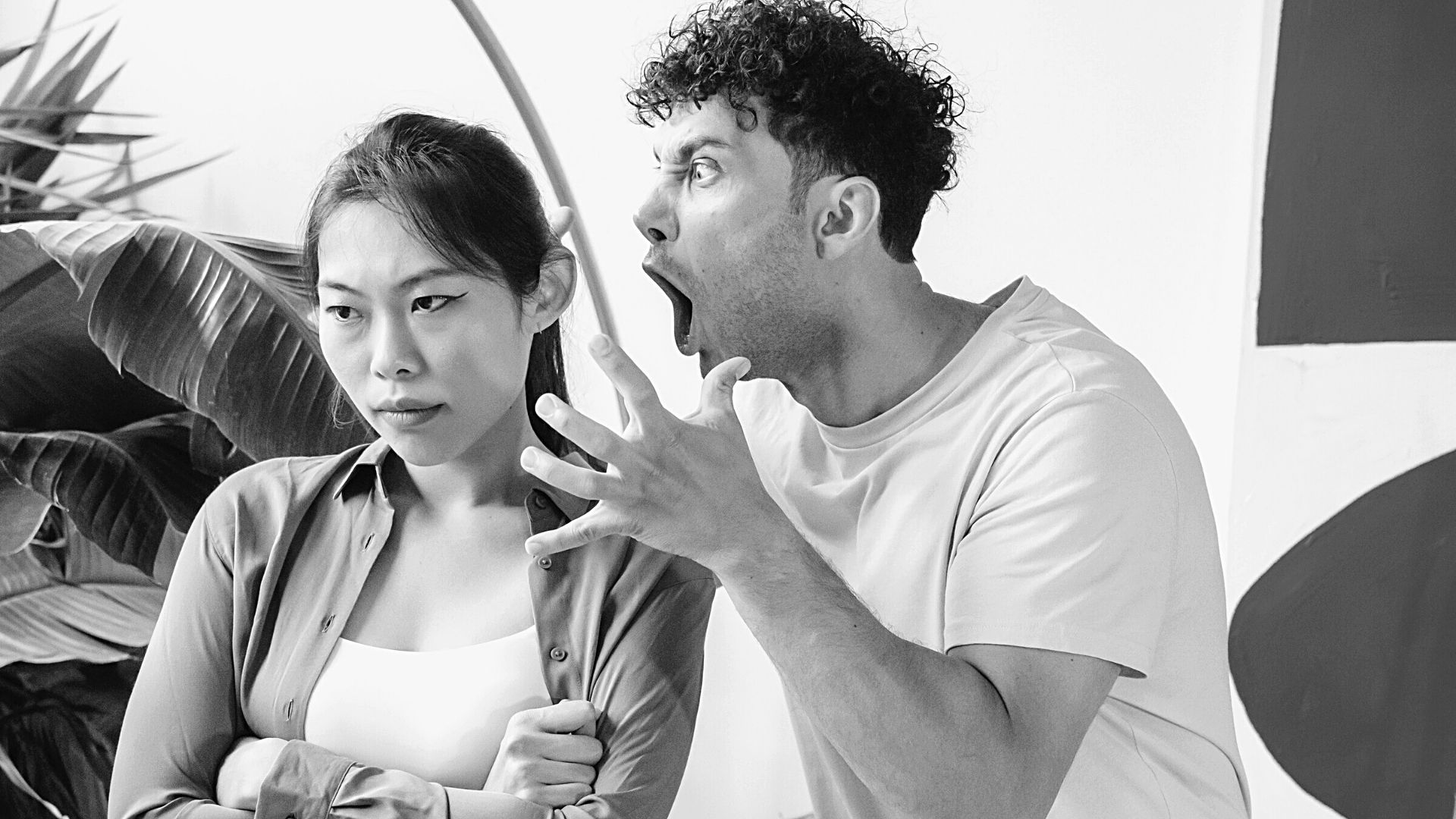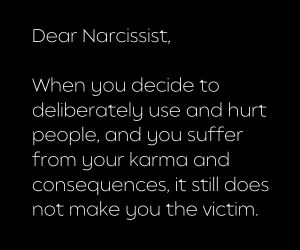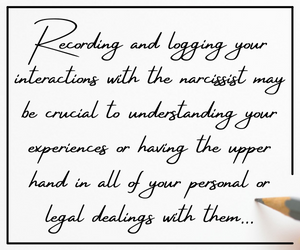Don’t take blame
In many cases the victim can end up apologizing,
which is to accept blame for feeling the way they felt when the narcissist has hurt them.
The complete crazy making of reactive abuse can leave us feeling confused, lonely and invalidated.
We are not to blame for feeling hurt or pain that is caused by the abusive actions of someone else.
Accepting blame is to become a victim of gaslighting which is also psychological abuse.
The narcissist wants us to deny our feelings and to doubt ourselves so they can easier control us through their coercive manipulations.

They are also wanting us to feel shame for our reactions.
But it is the same shame that they deny and project onto others for their own actions or insecurities.
Reactive abuse is often the tactic the narcissist uses to shift blame.
We can only blame ourselves for the way we react,
But not for the way the narcissist has made us feel.
By responding instead of reacting, we can take some of our power back.
When we react with our emotions, we are giving power over to the narcissist.
Our reactions fulfil the narcissist’s agenda.
They will turn the situation around and point out how crazy we are,
that they are afraid of us, that we are overreacting and that we are being abusive toward them.
And often, we can even question ourselves and believe them.
This is a way they gaslight us to take blame, don’t fall for it.
Believing their narrative keeps you in the toxic relationship,
unable to see the truth of the situation and accepting the psychological abuse.

It is important to be able to differentiate and separate your reactive abuse from the real abuse that initially caused it in the first place,
to see and accept the truth of what is actually happening in these situations.
Conditioned to take and accept blame
If we have grown up in a narcissistic family dynamic,
then we have likely already been conditioned to take or accept blame.
The victims are self-aware, and feel bad for their reactions.
They accept blame for their reactions, but the narcissist’s gaslighting often confuses the question of who is actually the abuser.
Whereas, the true abuser will never be willing to accept blame.
From a young age we can learn to accept accountability because it avoids drama,
it may avoid consequences for standing up for oneself,
or we have such low self esteem and believe that we are not good enough and it must be our mistake.
The narcissist tells us we are to blame, and when we have self-doubt, we tend to believe them.
As a child, we do not know what life is about or who we are.
We can often confuse what is right with what is wrong.

We get validation from our caregivers and the people in the world around us.
And if everyone in that world is telling us we are wrong and at fault, it is easy to believe this narrative.
Look back on how you were treated as a child,
maybe it is time to unlearn old beliefs that are holding you back from your healing and personal growth.
It is time to stop believing the past lies that people have told us about ourselves.
The narcissist wants to hold us back in life, they deliberately make us feel we are never enough.
They feel powerful when you have less confidence than them.
And they are threatened and angry when you grow within yourself.
We must move away from them if we are to fulfil our purpose in life, or if we are to experience and have all the great things that life has to offer us.
Learning about who you are, who the narcissist really is and understanding their gaslighting,
helps us to build healthy boundaries and emotional maturity which can help us remain in control during reactive abuse.








